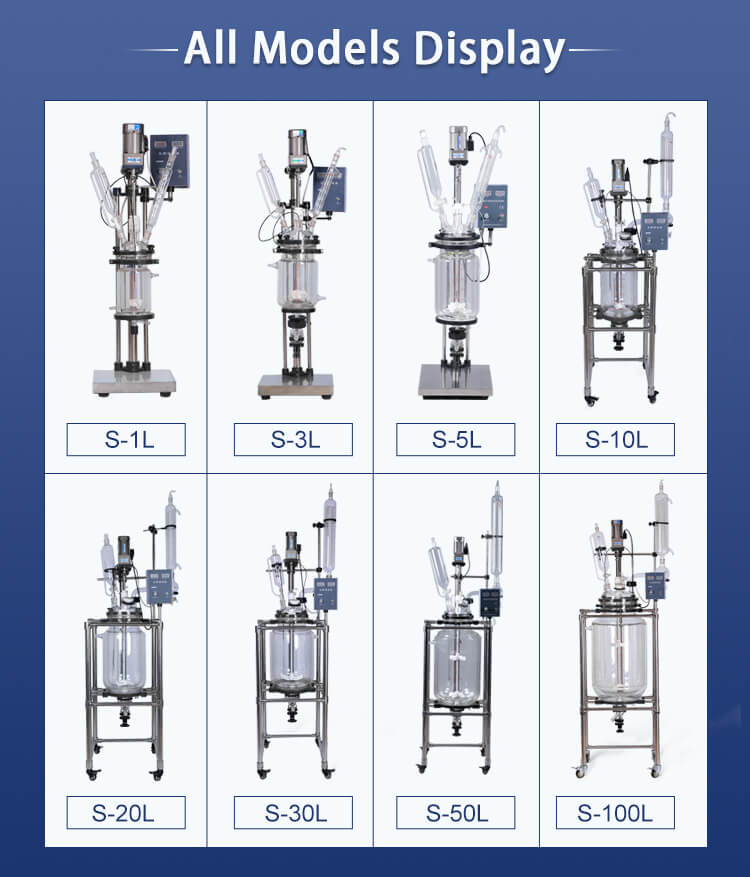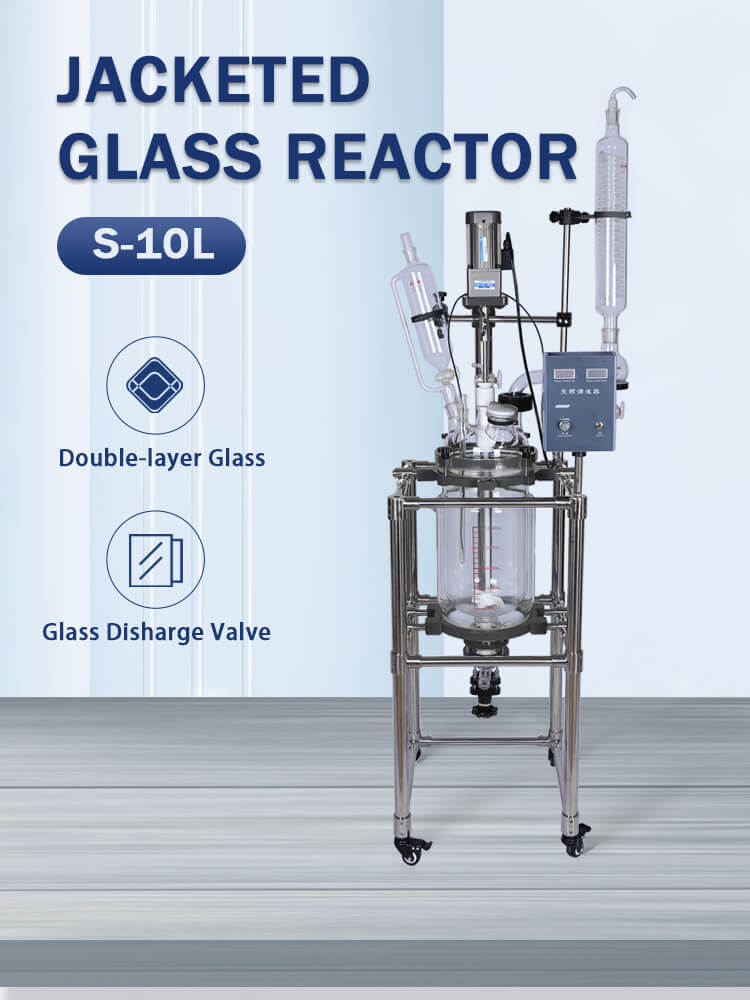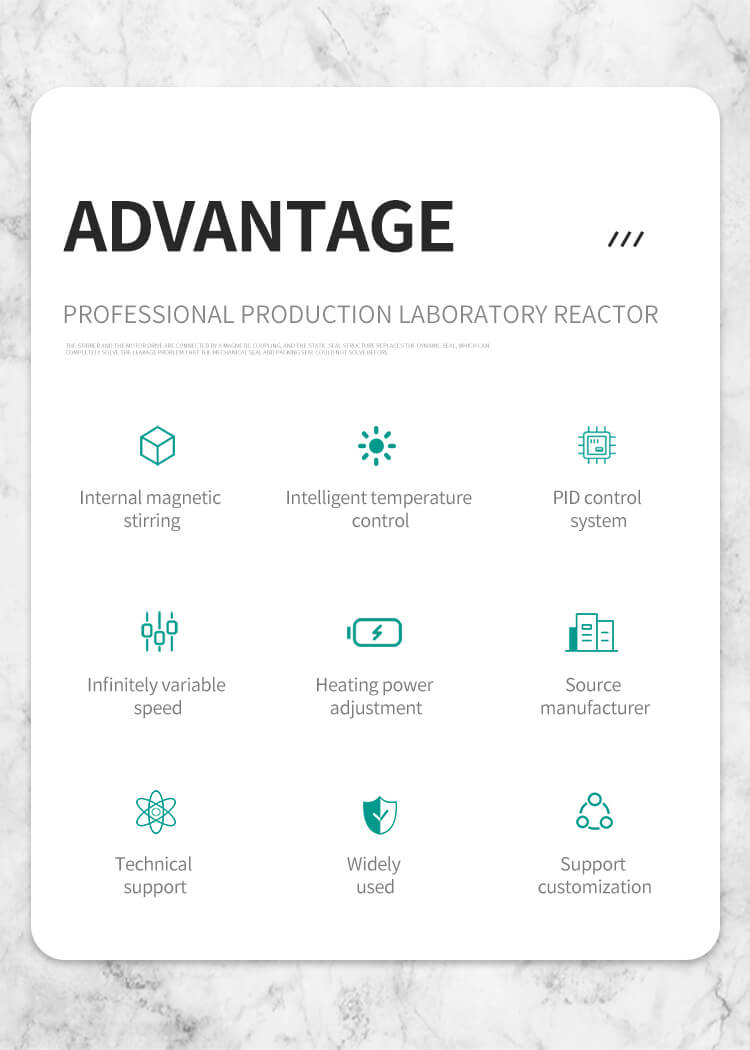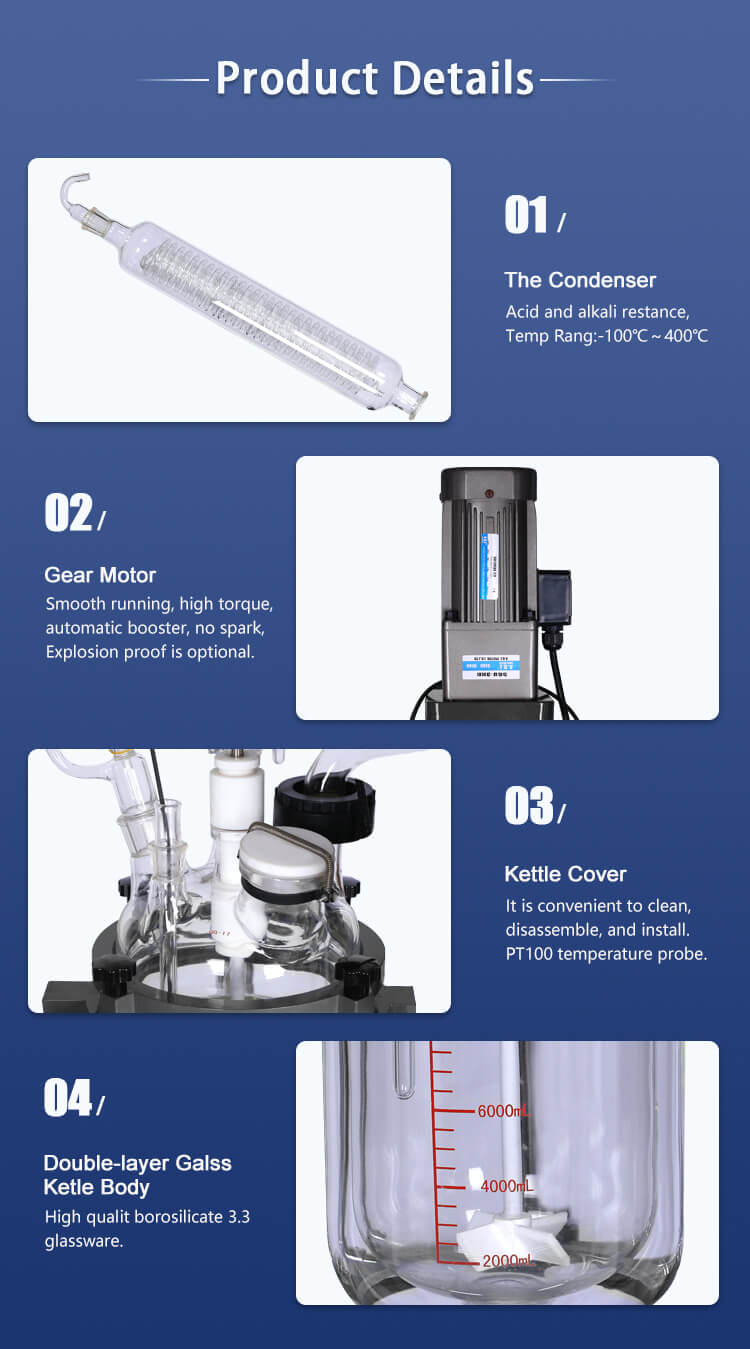A glass chemical reactor is a type of laboratory equipment used for various chemical processes. It is widely utilized in research and development activities, particularly in the fields of chemistry and pharmaceuticals. This reactor consists of a glass vessel, typically made from borosilicate or quartz glass, and a heating or cooling system, along with other necessary components.
The glass reactor is designed to contain chemical reactions, allowing scientists to observe and control different parameters during the process. The transparent glass vessel offers several advantages, such as easy visual inspection of the reaction progress and excellent corrosion resistance. These reactors are commonly used for chemical synthesis, extraction, purification, and other laboratory-scale processes.

One significant advantage of using a glass chemical reactor is its ability to handle a wide range of chemicals, including highly corrosive substances. The inertness and stability of glass make it an ideal material for such applications. In addition, the glass reactor's versatility allows for precise temperature control and uniform heat distribution, ensuring efficient and reproducible reactions.

Glass chemical reactors are commonly equipped with additional features to enhance their capabilities. These include stirrers or agitators for improved mixing, reflux systems for continuous operation, and condensers for vapor control. The reactors can also be customized with various accessories, such as probes for real-time measurement of reaction parameters, sampling valves, and pressure relief systems.
Various industries benefit from the use of glass chemical reactors. In pharmaceutical research and manufacturing, these reactors are crucial for developing new drugs and analyzing their synthesis pathways. The chemical industry relies on glass reactors for process optimization, catalyst testing, and scaling up production processes. Furthermore, academic institutions and research laboratories extensively employ them for fundamental scientific studies.

In conclusion, glass chemical reactors play a vital role in scientific research, allowing for controlled chemical reactions and analysis. Their transparent and corrosion-resistant properties, coupled with the ability to handle diverse chemicals, make them an essential tool in various industries. As technology advances, these reactors continue to evolve with improved designs and additional features to meet the ever-growing demands of chemical research and development.






